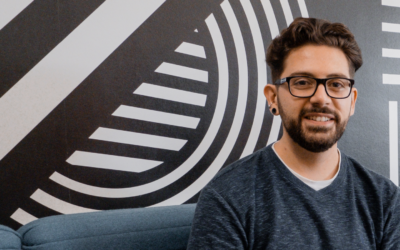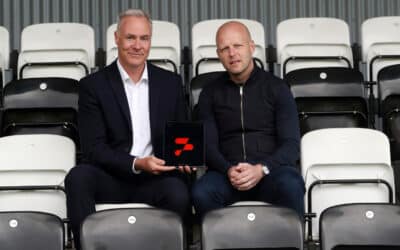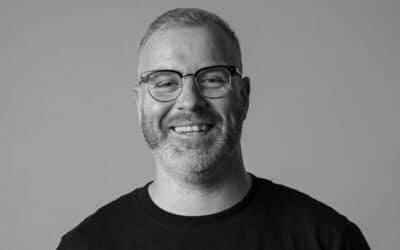With an NHS at breaking point thanks to lengthy waiting times, exhausting shifts, staff shortages and strikes as lives hang in the balance across busy A&E departments, it’s a perfect storm of pressures for overworked doctors at risk of burnout and stress.
They’re all familiar snippets of A&E life for Dr Edward Lynch, who is now – successfully – juggling life as both an A&E doctor and tech founder of The Wellbeing Doctors.
“Workload strain and being in an intense, brightly lit environment with buzzers going off, it’s highly stressful. There are sick people, sometimes agitated and aggressive people, there are bodily fluids and risks everywhere,” he tells Prolific North.
Fed up with generic workplace wellbeing initiatives, he believes he’s now found the key to improving staff happiness and business productivity by using a tailored, doctor-led approach.
“We get very frustrated when we look at other areas of the market where it’s just an absolute cowboy approach to wellbeing – such as staff yoga sessions – but that might not be appropriate. We have a highly individualised medical approach to wellbeing.
“Society’s view of mental health is very different to what you should do for mental health. You should focus on your lifestyle and overall health but society’s view is you go to your GP and you are typically put on antidepressants. That approach is terrible.”
With a small team of doctors and health professionals based in Liverpool, the platform works to tackle the root causes of mental health through a mixture of medical and lifestyle assessments.
The idea behind the platform stems back to his days as a medical student. While in his third year at university, he discovered a fellow student he went to school with at The Blue Coat in Wavertree had tragically died by suicide.
“He went down to Bristol for uni and was doing chemical engineering. After submitting his dissertation, he ended his own life.
“At that point, I knew I wanted to try and do something about mental health but I didn’t know exactly what to do or how I was going to do it.”
Approaching the school about the death of young Alex, he asked if he could help other students who might be struggling with their mental health as they transition into university life.
“Typically it’s a very high risk period of their lives. You’re moving away from family structures, new friends, a new course, new environment. There can be a lot of turmoil within that period.”
Hosting a few assemblies, he started off by speaking to sixth form students about how to look after their mental health, wellbeing and how to prepare for university. Student engagement was so high that the school asked for a special session for the teachers, then the parents and it just “snowballed from there”.
Medical school, co-founder woes and working in A&E
With a long and winding road battling with his own mental health and wellbeing, he knows all too well about what it takes to overcome difficult times.
After facing a claim that he failed one of his OSCE exams at medical school, his dreams of becoming a doctor were almost crushed when he was kicked out of university.
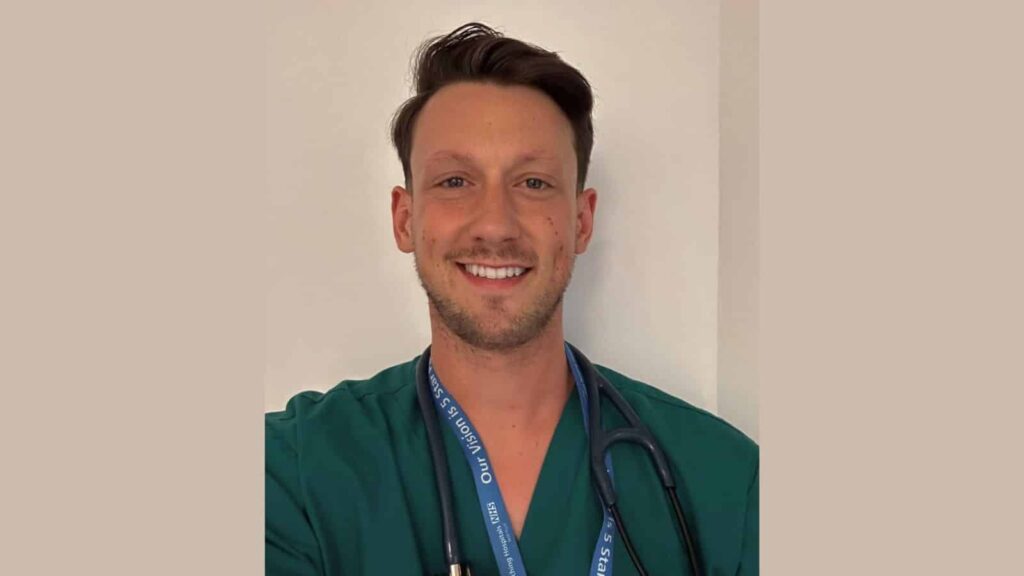
During a long 12-month journey trying to fight his way back in, even going to court to represent himself, he was able to show there were numerous systemic failures – such as the university’s failure to keep exam scripts – and managed to secure his place back on the course.
“It was a relatively stressful period of my life. I’ve experienced what it means to be burnt out with high levels of stress and relatively poor levels of mental health.”
Although it was a chaotic time, having “protective mechanisms” in place like eating well, sleeping and exercising all helped him to cope.
“If you don’t have that stuff, then your whole life’s in turmoil and there’s too much chaos that you can’t cope,” he explains. “It was really difficult but it’s about how you deal with it. We all have our own stresses, lifestyle problems, death and pain. It’s part of human life.”
The difficulties only continued when he transitioned into life as an A&E doctor. “I was burning out and doing 100-hour weeks,” he explains. “But all of that said, I wouldn’t change it for anything.”
Dealing with patients with heart issues after landing his first job in cardiology, he soon found himself on call covering eight or nine wards with the responsibility of looking after more than 200 patients.
Although handling death became part and parcel of the job, one encounter still sticks in his mind. Ralph*, an elderly man heading towards the end of his life with heart and kidney failure, was admitted into the hospital.
He found himself becoming “too close” to Ralph, playing chess and checkers in between seeing other patients. Unexpectedly, Ralph passed away the night before he was due to go away for his mother’s birthday on a family trip to the Lakes.
“I remember just being devastated on the drive up there to the castle,” he reflects. “Typically, you’re not emotionally tied to the patient’s like that.”

Navigating challenging encounters at work and school, he’s had his share of co-founder woes too.
After a surging demand for sessions around mental health and wellbeing support, he initially teamed up with a fellow doctor to set up a health tech company called Lyfe.
With £120,000 funding to get the platform off the ground, the company was based around an idea to incentivise lifestyle interventions.
“The idea was good but it didn’t solve the underlying need around mental health, “ he explains. “We did that for two years but came to loggerheads with it and we decided to disband the company.”
It ended in a “massive headache” and, after falling out with his ex co-founder and narrowly avoiding court, he decided to regroup and set up his own business.
“That experience really helped to set a stronger foundation for The Wellbeing Doctors.
“I am a strong believer that everything happens for a reason. Without those experiences, I wouldn’t be where I am today so I wouldn’t take them away in a heartbeat – even getting kicked out of uni was part of the process!”
The future for The Wellbeing Doctors
It seems extraordinary that a doctor has time to fit in being the founder of a wellbeing platform too, working six and a half days a week. But by applying the same tailored approach The Wellbeing Doctors offers, he said he’s now able to manage busy workloads and juggle both jobs with ease.
“The fallout of mental health problems is typically due to social issues and lifestyle related issues,” he says. “Typically in A&E, 90% of all diseases are down to lifestyle. If you can address that 90%, if you eat well, sleep well, exercise well and have good relationships, you’re going to have a good life.
“If you look after those ‘protective mechanisms’ and you look after your lifestyle health, there’s no limit to the amount of things that you can actually do. That is what we’re trying to instil in people with The Wellbeing Doctors.”
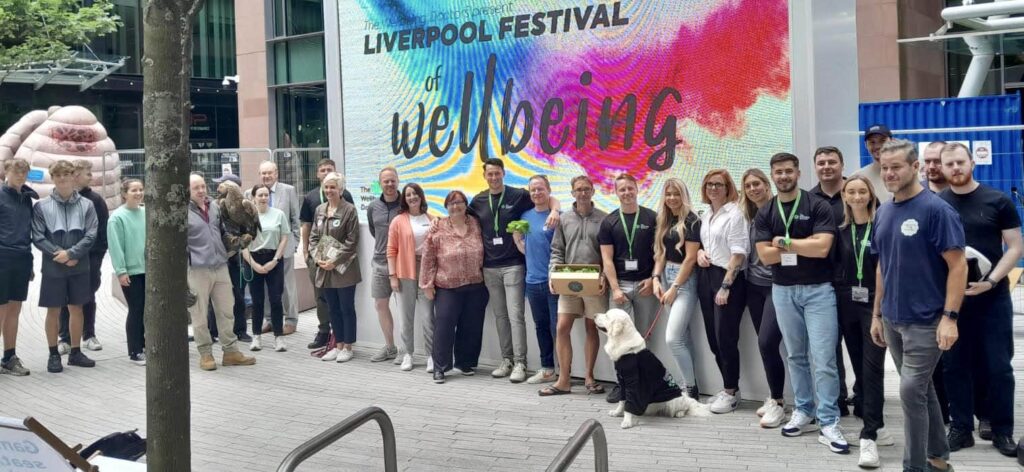
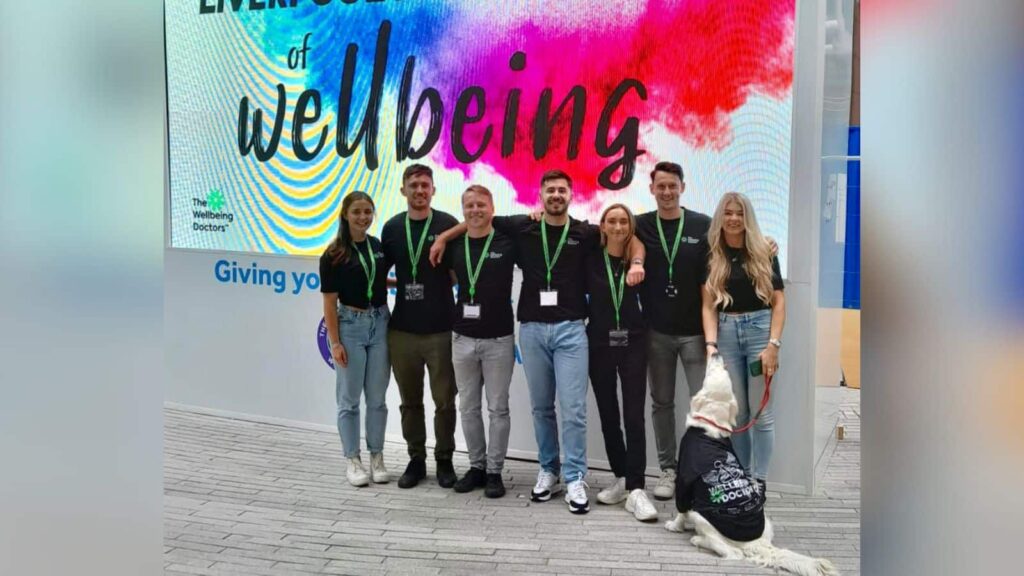
At the moment the platform goes into corporates, working with commercial property firms like CBRE which is home to companies such as KPMG and EY.
Staff can come into drop in clinics set up by The Wellbeing Doctors, get their blood pressure taken and set themselves up on the platform.
The team then looks at the individual’s underlying health, eight key areas as part of a lifestyle assessment such as their sleep cycles and what they eat, past medical history and physical health with blood pressure and blood tests. Ultimately, it’s to create a tailored wellbeing plan at the end.
“It’s a trailblazing approach to wellbeing, it is what wellbeing should be and always should have been.”
Although he hopes the platform will eventually be available for everyone and can integrate with the NHS to improve “patient optimisation outcomes”, it’s still early days and, for now, he’s focused on ensuring the platform’s route to market is right.
“We’re focused on our route to market, which is through that facilities management firm approach with the likes of CBRE with a view to onboard companies under those facilities managers onto the dashboard.”
The company’s latest version of the platform went live recently, which includes a manager dashboard where managers can have an anonymised overview of their teams’ health.
If that manager spots an issue with one of their teams, such as struggles with high blood pressure recordings or disordered sleeping, the platform’s data can provide insights into why there might be a problem and offer solutions to improve the health and wellbeing of staff.
“We’re in a very exciting stage of the company where hopefully we get a lot more business engagement and sign-ups. We’ve seen hundreds and hundreds and hundreds of people through the dashboard.”
He quips: “It’s fully tailored. We’re actually listening to people, which downloading Headspace doesn’t quite do…”

